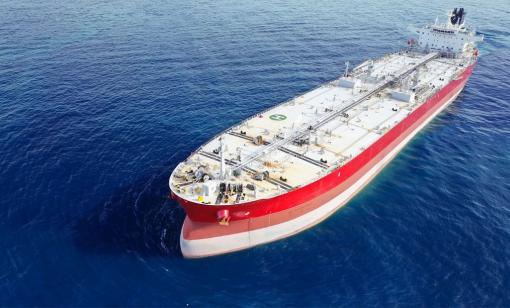EU Countries Approve Early Carbon Market Auctions
The plan will raise 20 billion euros (US$21.3 billion) in grants from the EU carbon market, partly by holding carbon permit sales earlier than planned as part of efforts to wean off Russian gas.
U.S. Official Says Russia's Crude Output Cut Signals Unsold Oil
Russia said it would cut production following the start of Western price caps, with the U.S. Treasury Department's Ben Harris arguing it's due to the inability to sell oil, not because they wanted to weaponize oil or refined products.
Oil Unlikely to Break Above $100/bbl This Year, J.P.Morgan Says
J.P.Morgan analysts say supply-demand will likely further balance, due to Russian output expected to recover by June and higher price levels preventing the U.S. from repurchasing to add to petroleum reserves.
Russian Fiscal, Export Revenues Plunge in January
Western sanctions haven’t stopped the Russia-Ukraine war but have impacted the Kremlin’s fiscal and export revenues and complicated Putin’s existence, Dr. Thomas Wilfred O’Donnell, a global fellow with the Woodrow Wilson Center and an instructor at Freie Universität Berlin, told Hart Energy.
European Demand to Boost LNG Competition Over Next Two Years: Shell
European LNG imports rose 60% from 2021, with 121 million tonnes last year, according to supermajor Shell.
Russia Likely to Spy More on Norway's Energy Industry, Says Norway Security Policy
"Norway's role as an energy supplier to Europe has assumed even greater security policy importance as a result of the war in Ukraine," Norway's police security agency said.
What's Affecting Oil Prices This Week? (Feb. 13, 2023)
Russia announced on Feb. 10 a 500,000 bbl/d reduction of crude production beginning next month, resulting in a spike in crude market prices.
Russia Strikes Ukrainian Power Grid and Makes Ground in the East
Russian strikes hit power facilities in six regions in Ukraine, cutting power for millions in the middle of winter.
Dutch Have Cut Bulk of Russian Energy Imports a Year After Ukraine Invasion
The Netherlands is still working to cut off its Russian LNG imports after Russia invaded Ukraine nearly a year ago.
Russian ‘Ghost Tankers’ Stalk Global Oil Markets
As many as 600 ghost tankers ferry Russian crude oil and oil products to markets at high risk and reduced prices.



